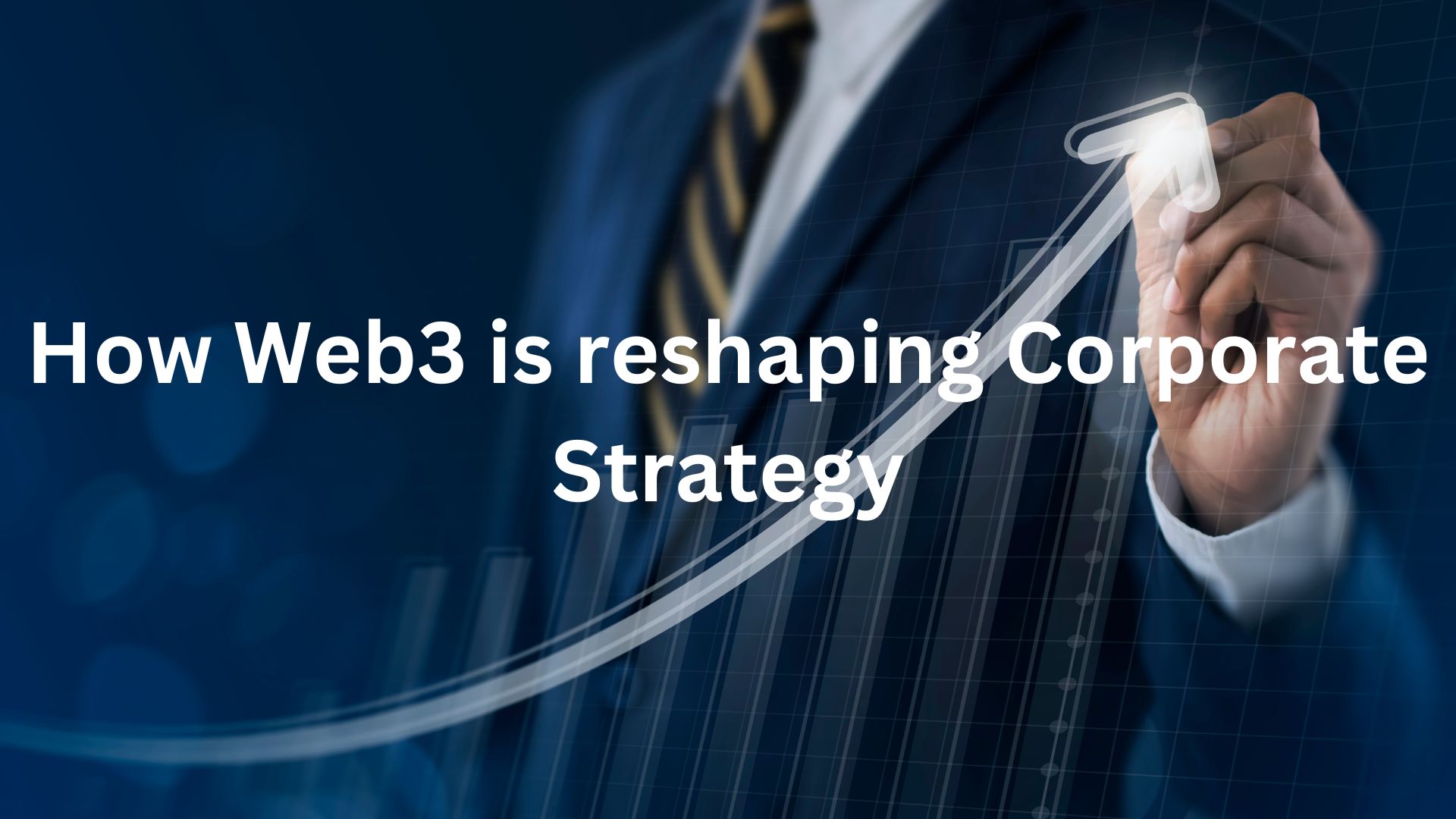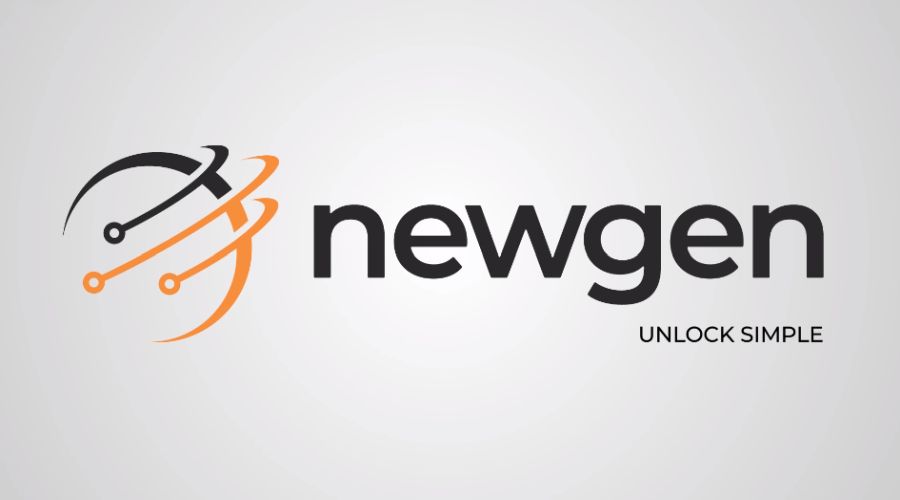Web3 has been a buzzword for quite some time. It remains the epicentre of changes, growth, and new economic dimensions. Web3 is a decentralized, innovative version of the Internet that operates on a new technology known as blockchain.
Unlike traditional business models, which rely on centralized systems or the need for intermediaries for effective business operations and are prone to human error and other forms of business failure, Web3 offers a different approach. It promises transparency, decentralization, and total user ownership. This has, in many ways, forced businesses to rethink their corporate strategies.
Recently, leading enterprises have passed the stage of experimenting with Web3. Instead, these companies have adopted Web3 business models and integrated these strategies to gain a competitive advantage.
From blockchain-based supply chains that enhance transparency in business bottom lines to tokenized loyalty programs that improve customer engagement and experience, businesses are leveraging decentralized technologies in their corporate strategies to drive innovation and improve efficiency.
But the real question is: how are major enterprises successfully integrating Web3 into their business models?
In this article, we will examine real-world case studies of enterprises that have integrated Web3 into their corporate strategy. This article will also provide actionable insight into how Web3 can be incorporated into your business as an entrepreneur or Web3 enthusiast.
Let’s check it out.
The Core Pillars of Web3 Transforming Corporate Strategy
While many people assume that Web3 is all about fast payment, it is more than just a technological upgrade. It is a fundamental shift in how businesses operate. Here are some of the technology upgrades that are pushing this change and forcing companies to rethink their corporate strategy:

- Decentralization & Trustless Systems
One of the biggest transformations Web3 brings is decentralization. This eliminated the need for intermediaries and improved transaction speed and data management. A typical example can be seen with e-commerce companies.
For instance, traditional e-commerce companies like Amazon act as middlemen before transactions can be facilitated. In contrast, web3-powered marketplaces like OpenSea give users the ability to buy and sell digital assets without intermediaries and with ease. This allows businesses and consumers to have control and security over their assets.
- Blockchain & Smart Contracts
Smart contracts are self-executing contracts that operate on a blockchain. Due to their self-executing features, smart contracts have improved business operations through automation processes, reducing fraud, giving less room for human error, and improving overall business efficiency.
A good example is the supply chain industry. Companies like IBM and Walmart make use of blockchain-based smart contracts to automatically track shipments, verify products, ensure transparency in the bottom line, and also ensure fast delivery of goods. This has reduced operational costs and built trust between companies and their customers.
- Tokenization & Digital Ownership
Enterprises are creating various revenue streams to ensure growth. With the advent of Web3, enterprises now have new revenue streams and real ownership. One of those streams is a tokenized asset and tokenized loyalty program.
Brands are utilizing digital ownership to improve engagement and foster customer loyalty. A prime example is Nike’s “.SWOOSH” platform, which allows users to purchase, sell, and trade sneakers as NFTs.
This enhances customer’s experiences by providing scarcity and exclusivity, which increases the brand’s value. Similarly, Starbucks and other brands are implementing such programs by rewarding customers to build stronger ties with them and give them a unique experience.
- Community-Driven Governance & DAOs
Through Decentralized Autonomous Organizations (DAOs) and Web3’s blockchain technology, power is being transferred from large corporations to community-oriented organizations.
Unlike conventional businesses where top management makes all the decisions, DAOs facilitate key business direction voting by customers, investors, and employees through blockchain-backed governance models.
For instance, Decentraland, a virtual world powered by Decentraland’s blockchain technology, is a DAO where landowners and token holders vote on changes and rules for the platform. This promotes efficient and effective transparency, inclusivity, and user engagement, which alters how customers and investors get involved in business.
Case Studies: How Leading Enterprises are Adopting Web3
Many enterprises have integrated Web3 capabilities into their operations to give them a strategic advantage. Here are real-world examples of companies that have successfully integrated Web3 into their corporate strategies:
- Walmart: Blockchain-Powered Supply Chain Transparency
Walmart has been at the leading edge of the adoption of blockchain, utilizing distributed ledgers to improve efficiency in its supply chain. Traditionally, the process of following products from suppliers to the finished product in the store was slow, error-prone and at risk of fraud. Blackberries Food Trust Blockchain technology now allows Walmart to have:
- Keep track of food products in real-time: Every item that is involved in the supply chain is recorded on an immutable blockchain to guarantee authenticity.
- Increase supply chain safety and compliance: the system utilizes instant recalls to ensure that contaminated products stop being stocked by consumers.
- Reduce the costs and inefficiencies of the supply chain: Walmart has been able to minimize delays in the supply chain and free up the field with respect to supply chain disputes.
By the use of blockchain, Walmart has improved trust and transparency of its inventory, impacting the way that large enterprises can better implement supply chain management with Web3.
- Nike: NFT and Tokenized Customer Engagement
Nike is currently bringing about a shift in how customer loyalty is transferred within their engagement platforms by the use of NFTs and tokenized digital assets.
The customer loyalty of Nike is greatly enhanced by the inclusion of its platform Web3, which is referred to as SWOOSH.SWOOSH, in which users are able to purchase and sell as well as own physical digital sneakers that have been tokenized.
This innovation allows for a number of perks and additions to the customers’ loyalty to Nike, keeping in sight, for example, the fact that it may become possible for purchasers to sell their digital sneakers at a profit. This allows for a multitude of opportunities to be available to those who purchase digital copies as NFTs.
- Exclusive access to digital and physical sneaker drops: NFT holders get first access to limited edition releases for both digital and physical items.
- Increases in new revenue opportunities: Nike is gaining revenue by collecting royalties from secondary sales of their NFT items.
- Also increases customer engagement by enhancing their ability to access digital assets, which strengthens the brand loyalty of the NFT holders, thereby creating a direct personal relationship with its customers.
Nike has shown that in the Web3 Era, the use of tokenized discoveries of branded experiences can create exclusivity as well as foster more secure customer relationships.
- JP Morgan: Web3 in Finance and Banking
JPMorgan, a major global financial institution, is taking part in Web3 by making use of its Onyx blockchain platform. Through the use of its blockchain-based financial services it has been involved in expanding several areas, and with its own Onyx platform, it has:
- Facilitated cross-border payments using blockchain technology: This will allow transaction times to reduce drastically to minutes compared to previous times spent in days.
- Launched tokenized deposits and digital assets: which, in conjunction with previous work, will enable more efficient and quicker banking services to be delivered.
- Became involved in the Metaverse: by entering this new market, one of the virtual lounges will be opened in Decentraland. To allow more innovative possibilities for the future digital finance playshop of development to be explored.
JPMorgan’s Web3 strategy has been shown to prove that decentralized finance (DeFi) is not simply a disruptor; it is the future of banking. By utilizing blockchain, JPMorgan is being competitive within a rapidly changing financial sector.
How small businesses can take advantage of Web3?
Small businesses can leverage decentralized technologies to increase efficiency, increase customer engagement and unlock new revenue streams. Here is how you can leverage Web3 in your business.
- Accept Crypto Payments
By accepting cryptocurrency, small businesses can decrease transaction costs and speed while reaching customers from all over the world. Unlike traditional credit card payments which have exorbitant fees and extended waiting periods, cryptocurrency payments:
- Help to save money: Save on expensive credit card fees.
- Allow selling items globally: Sell without worrying about converting currencies.
- Enhance security and transparency: Payments are archived in a public blockchain lowering the chances of fraud.
It has never been easier for small businesses to accept payments through Bitcoin, Ethereum, and other stablecoins. Thanks to BitPay, Coinbase Commerce, and Strike, adopting these new payment methods has never been easier.
- Use NFTs for Customer Loyalty Programs
Small businesses can use NFTs to reward customers in ways that matter to them. Unlike loyalty points, NFTs can be:
- Tradeable and resellable: Customers can trade or sell rewards instead of hoarding them or letting them expire.
- Unique and exclusive: They can provide VIP access or special discounts to restaurants and stores, or they can simply be traded as digital collectables.
- Blockchain-verified: NFTs are impossible to duplicate or forge.
For instance, a small coffee shop could issue NFT loyalty cards that give users a lifetime discount or that allow the user to be one of the first to buy new products. Businesses can connect their operations to NFTs through Shopify, Rarible, or OpenSea.
- Leverage Smart contracts for automated transactions
Smart contracts function as self-sufficient agreements existing on the blockchain which can process business agreements automatically and without requiring a third party. These contracts can be helpful for small businesses in the following ways:
- Freelance and Contract Payments: Release of funds when work is marked as finished.
- Supply Chain Management: ensuring products’ authenticity and equity in trade.
- For subscriptions and memberships: recurring payments without middlemen.
For example, a Web3-based co-working space can leverage smart contracts to automate the payment of membership fees, allowing for effortless payment processing. Smart contract deployment is possible using platforms such as Ethereum, Solana and Polygon.
- Crowdfunding Using Tokenization & DAOs
By using tokenization and DAOs (Decentralized Autonomous Organizations), small businesses can now fundraise without needing to depend on traditional bank loans or VC funding. This enables businesses to:
- Offer tokenized equity: Splitting the business ownership and allowing customers and supporters to invest.
- Enable customer decision-making: Making customers active participants in the business.
- Fundraise without borders: Customers can be solicited from anywhere in the world with no complicated legal protocols.
A good illustration of this is startup fashion brands that can establish a DAO where token holders have the right to vote on new designs and receive incentives such as profit-sharing. Businesses trying to set up Web3 crowdfunding can use platforms like Juicebox, Mirror, and Syndicate.
The Future of Corporate Strategy
Web 3 will redefine corporate strategy by pushing an entity into the use of decentralized, transparent and token-maintained models. As companies begin to move away from the traditional hierarchical structures that are a requirement for firms, decentralized autonomous groups of users (DAOs) will allow employees, customers and investors the ability to participate more freely in the decision-making processes of the business.
This move away from traditional Layer 2 structures will reduce bureaucratic processes and introduce increased transparency within the business. This will strengthen brand loyalty among company users.
Tokenization will become a key driver of business innovation and will revolutionize how companies offer memberships, equity shares and customer rewards in a modern manner. As digital assets such as NFTs expand beyond the realms of collectibles, they will offer exclusive access to attendees to a variety of products, services and experiences.
Simultaneously smart contracts will automate transactions, improve the efficiency of businesses, and significantly reduce reliance on third parties.
The metaverse will further expand upon corporate engagement allowing businesses to create immersive virtual experiences that will strengthen customer relationships.
Decentralized social networks will also provide companies with a direct connection to their customer base, bypassing traditional platforms that are in use at present. As Web3 matures businesses that adapt quickly will gain a significant competitive advantage.
Conclusion
Web3 is not just a passing trend; it is a fundamental change in the method by which businesses operate in their day-to-day interactions with their customers and produce value.
Companies that use blockchain, smart contracts and tokenized engagement within their business strategies will be able to enhance the transparency, automation and customer loyalty of their businesses. As the decentralized business model gains traction, companies will need to rethink how they govern, transact and engage with the audiences they directly interact with.
Forward-thinking businesses are already using Web3 technology to streamline operations both internally and externally to foster closer relationships with clients. From technologies outlined in their recent revelations, such as decentralized finance and NFT-powered loyalty programs, the companies that adopt these trends will be at the forefront of their industries’ overall direction.
Those businesses that dilly-dally and do not adopt these changes run the risk of being left behind in what is becoming an economy that is expected to increase across all areas powered by digital ownership and decentralization.
The transformation is now being completed. Businesses that are looking to identify Web3 now will not only ensure that their operations in the digital age are future-proofed but also enable the development of new growth opportunities, efficiency as well as long-term success in the digital age.
Read also: Building a Profitable Web3 Startup: Lessons from companies that got it right






